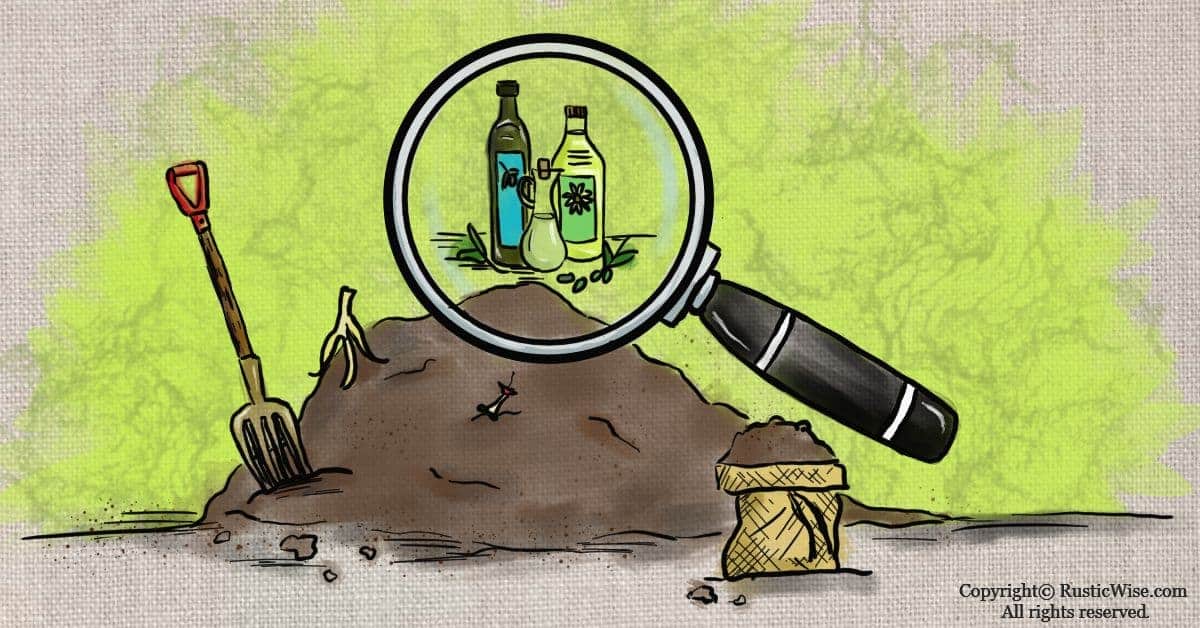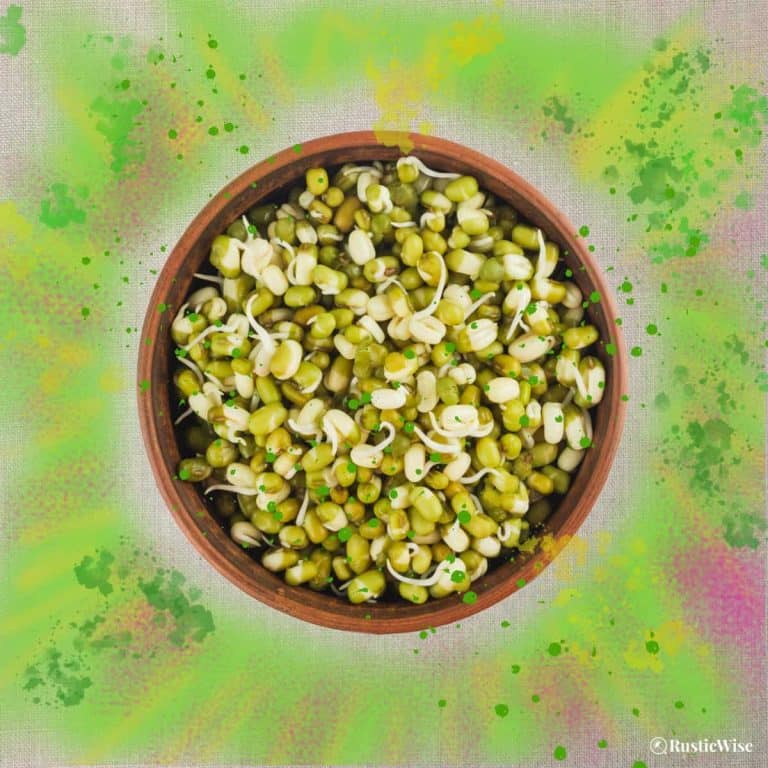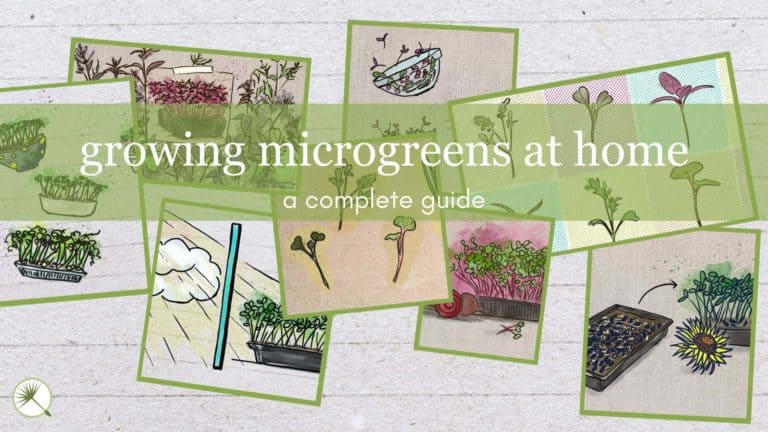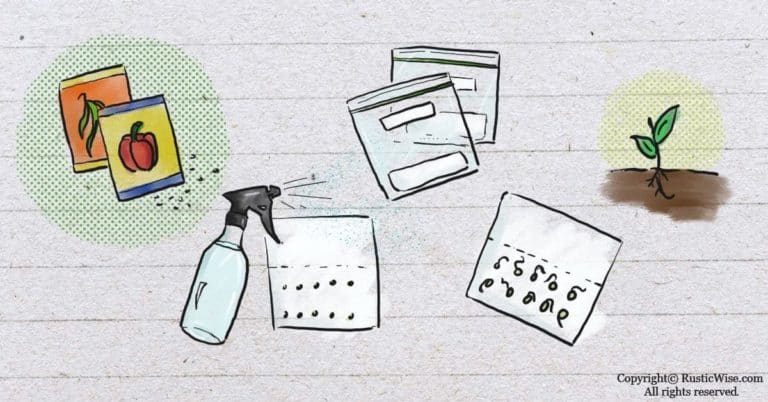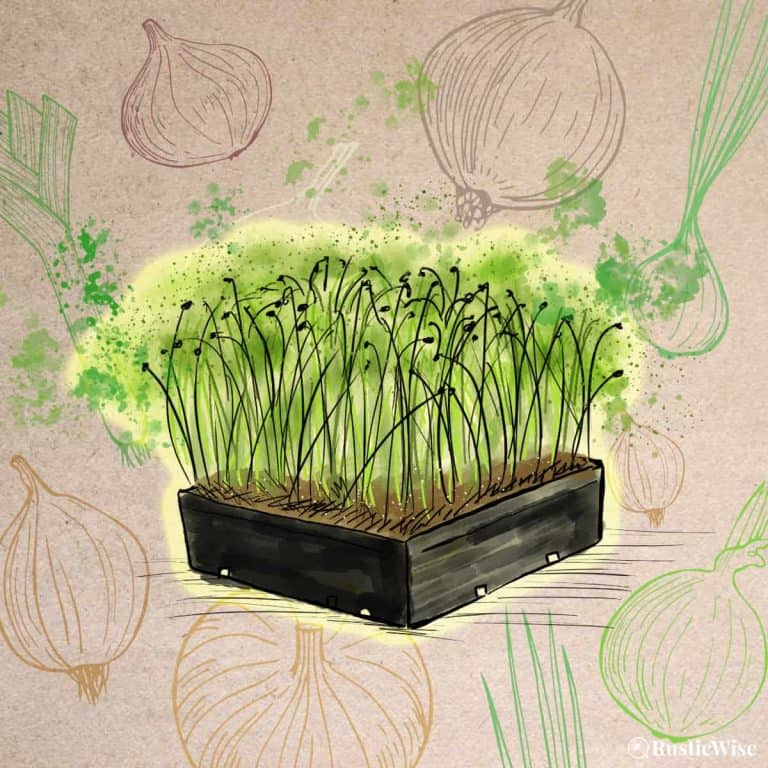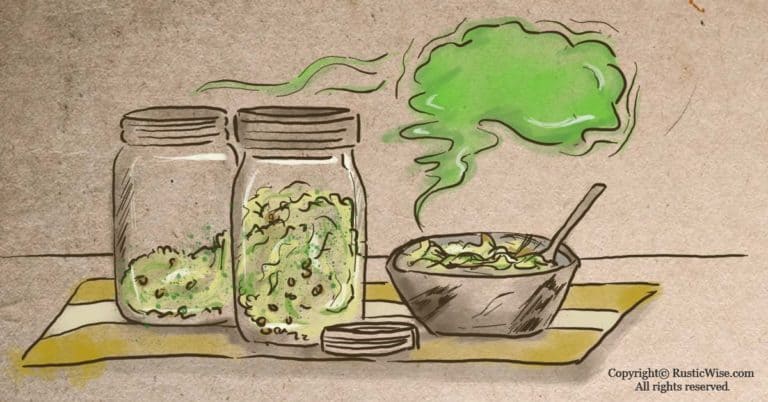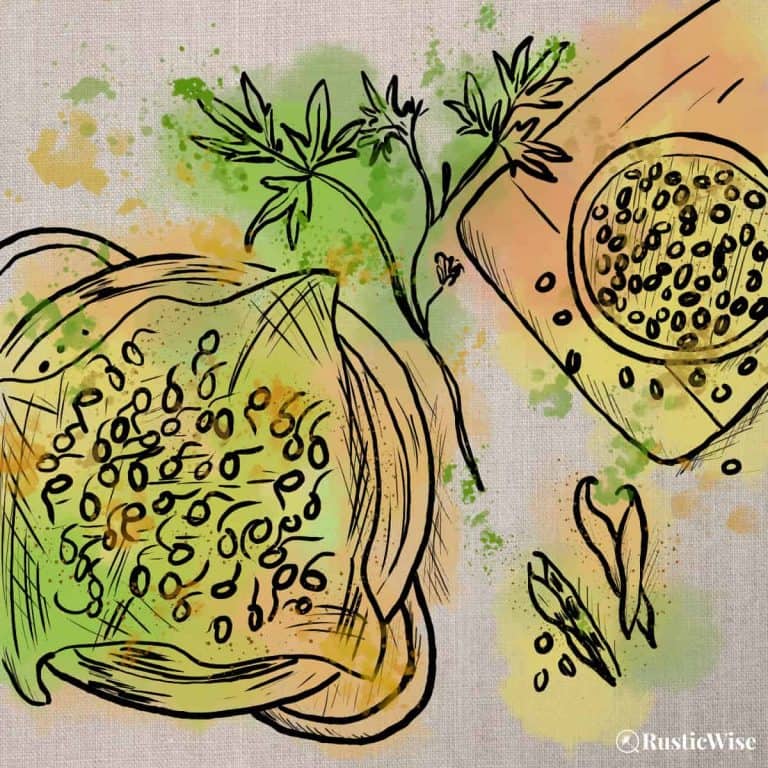Can You Compost Vegetable Oil? Here’s What You Need To Know
Can you compost vegetable oil? Yes, but before you can start dumping used cooking oil in your backyard compost, there are a few things that you should know. Only add plant-based oils that haven’t come in contact with meat, and only add a small amount. Adding too much vegetable oil creates air circulation issues in a compost heap resulting in foul odors. This may attract pests and rodents.
Forget about simply tossing in some old fryer grease to your compost. You have to consider how much is too much and what types of oils are appropriate for composting. If you are wondering what oils can go into the compost bin, we have that covered below. Read on to learn more about this natural and green way to dispose of cooking oils.
What are some potential problems of adding vegetable oil to compost?
Composting vegetable oil isn’t as straightforward as say, composting a banana peel. Like other trickier items to compost such as rice, there are some caveats associated with adding oils, fats, and leftover kitchen grease.
If you don’t follow a few precautions first, you could end up with a big, smelly mess.
The United States Environmental Protection Agency (EPA) does not recommend adding fat, oil, grease, or lard to your compost as it may, “create odor problems and attract pests such as rodents and flies.”
This is true if you add too much oil, or any products that are not plant-based, or oils that have come in contact during cooking with meat.
So, in other words, only add:
- Vegetable-based oils that have not come in contact with meat
- A small amount (generally less than a cup, but this depends on the size of your compost pile). This is because oils are more difficult to breakdown than other compost ingredients.
Tip: Remember to spread it around the compost and turn the pile to incorporate the oil.
If you don’t follow the guidelines above, you’ll wish you simply tossed the oil in the trash:
- An oily barrier may form around certain areas of your compost where you poured oil;
- This creates anaerobic conditions which are not beneficial for a backyard compost. Oxygen, or aerobic conditions are required to enable microorganisms and other critters in the compost heap to thrive;
- The lack of oxygen and poor circulation leads to a foul smell;
- The odor may attract unwelcome visitors such as pests and rodents.
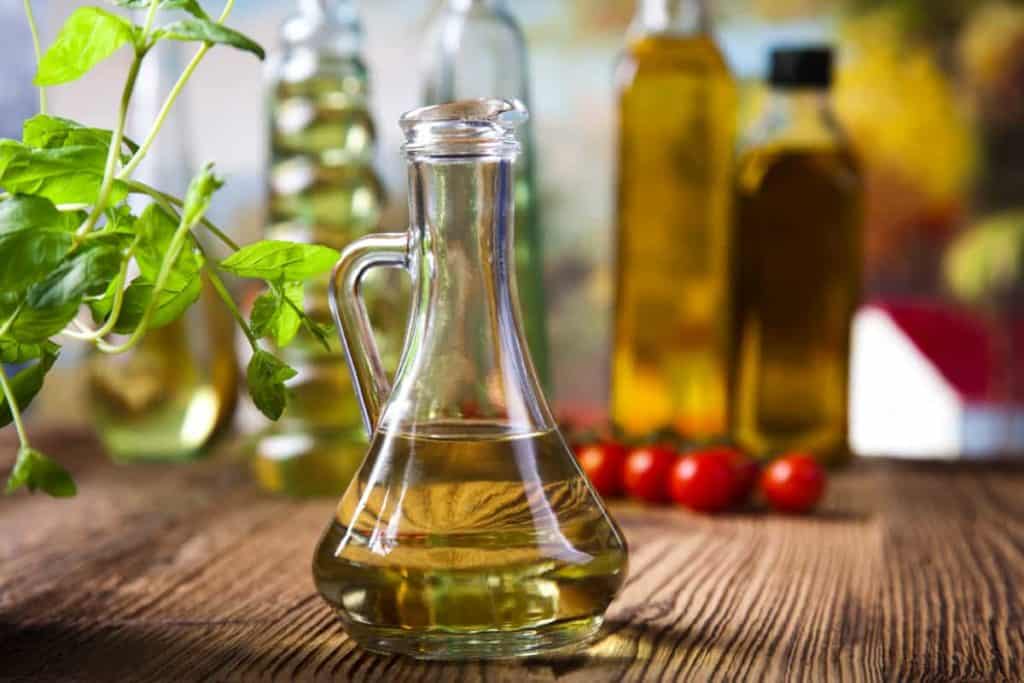
And it’s best if you have a hot compost pile
A hot compost is a thriving compost. When adding complex, or hard-to-decompose items like vegetable oil, you want to ensure your compost heap is actively working so it can break down compost ingredients quickly. This eliminates odors, and will prevent the compost from attracting backyard pests.
How hot is hot?
Generally, a hot compost is any pile that’s between 105 and 140 degrees Fahrenheit (41–60 degrees Celsius), according to the University of Florida Extension. At this temperature range, a group of bacteria that thrives in hot conditions called thermophiles are working at their best to quickly break down compost materials into finished compost.
Safe cooking oils to add to compost
Most plant-based or plant-derived foods can be composted. This includes vegetable-based oils such as:
- Canola oil
- Coconut oil
- Corn oil
- Olive oil
- Grapeseed oil
- Safflower oil
- Soy oil
- Sunflower oil
- Vegetable oil
Tip: You can also add any paper towels you used to wipe up the oil in the frying pan.
Don’t add these oils to your compost
To avoid attracting pests and other small critters to your compost pile, don’t add anything that has come in contact with meat, or seafood during cooking.
Don’t add the following types of oil to your compost bin:
- Synthetic oils
- Gravy
- Lard
- Bacon grease
- Oil from canned fish
- Leftover sauces and juices from cooking pans
Can you add used vegetable oil to a worm bin?
If you have a vermicompost, yes you can add vegetable oil, but use your judgment. It’s best to start with only a very small quantity to avoid harming the worms. Throwing in a greasy paper towel used to wipe a cooking pan would be okay.
Some people wish to forgo any sort of cooking oil in their vermicompost for fear of any bad odors that may result.
What else can you do with leftover cooking oil?
Besides adding a small amount to a thriving compost heap, there are other things you can do with leftover cooking oil.
Reuse it
Filter the oil to remove any leftover food scraps with a fine sieve, coffee filter, or cheesecloth. Allow the oil to cool before storing in an airtight container in the fridge. Remember to label it with the date and the type of oil.
A good rule is to separate different types of oil (you probably don’t want to reuse oil that’s been used to fry fish for deep-frying donuts!). You may safely use the oil a couple of times.
Most previously used oils last between 1–2 months before going bad.
Recycle it
Look into your local community food recycling programs to see if they’ll accept used cooking oil. Some may accept it in the pickup bins, while others accept dropped off items.
Tip: Keep an old tin can, or glass jar under your sink to collect any grease during cooking. Once it’s full, you can seal the top and safely add it to your food recycling bin.
Toss it
Never dump used cooking oil down the sink, drain, or toilet as this will cause drainage problems as oil solidifies.
Instead, you can mix cooled cooking oil, grease, or lard with another absorbent waste item such as old flour or kitty litter before throwing it out. Or, you can simply fill a container with solidified old oil, place a lid on it, and place in a bag before putting it in the waste bin.
Conclusion: can you compost vegetable oil?
You’ll find that composting vegetable oil is one way to reuse waste cooking oils in your home. But before you head out the door with a vat of old deep-fryer oil, there are some things you should know about how this process works. Vegetable oils can only be added if they haven’t come into contact with meat or dairy based products. You must also only add a small amount at a time and mix it well to ensure good air circulation so as not to attract pests or rodents. And it’s best to add to hot compost piles.
Related questions
How can you tell cooking oil is bad?
Believe it or not, most cooking oils have a “best by” date. This doesn’t mean that you’ll need to toss out that bottle of vegetable oil simply if it’s past the date. A “best by” date is just an estimate of how long the oil remains at its peak quality.
However, if you notice that the smell is off, or if the color or texture has changed, it’s a sign that you’ll need to toss it.
In the case of reused cooking oil, it should be strained of any food particles, and kept in the refrigerator for up to 2 months.
Can you dump vegetable oil outside?
No, it’s not recommended dumping used cooking oil outside. Eventually the discarded vegetable oil will make its way to the local sewage system which may contribute to drainage problems. Also, used cooking oil may harm local wildlife or waterways.
It’s best to dispose of old oil by placing it in a sealed container in a bag for garbage pickup. Better yet, try recycling it if your local municipality accepts used oil.

References
- United States Environmental Protection Agency (EPA), Composting At Home, https://www.epa.gov/recycle/composting-home. Accessed June 2021.
- University of Florida, Institute of Food and Agricultural Sciences, Managing a Compost System, https://sfyl.ifas.ufl.edu/sarasota/natural-resources/waste-reduction/composting/what-is-composting/manage-a-compost-system/. Accessed June 2021.
- Earth911, How to Recycle Cooking Oil, https://earth911.com/recycling-guide/how-to-recycle-cooking-oil/. Accessed June 2021.
- Werner, Tommy (02 June 2015). “Can You Reuse Frying Oil?“, Epicurious. Accessed June 2021.

Author: Josh Tesolin
Josh is co-founder of RusticWise. When he’s not tinkering in the garden, or fixing something around the house, you can find him working on a vast array of random side projects.

